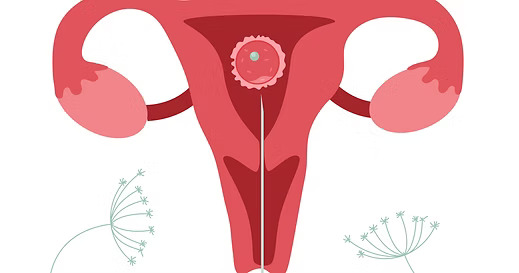
Intrauterine Insemination (IUI)
IUI: A Gentle Approach to Fertility Treatment
Intrauterine Insemination (IUI) is a common and less
invasive fertility treatment that can help couples and individuals conceive. It
is often one of the first steps recommended on the fertility journey, as it is
a straightforward procedure designed to increase the chances of sperm meeting
the egg.
The principle behind IUI is simple: we give sperm a head
start. By placing washed, concentrated sperm directly into the uterus around
the time of ovulation, we bypass potential obstacles and place a high number of
healthy sperm closer to the egg.
How Does IUI Work? A Step-by-Step Guide
The IUI process is a carefully timed series of steps that
aligns with your natural cycle or is gently enhanced with medication.
1. Ovulation Monitoring
We track your cycle to pinpoint the exact time of ovulation. This is done
through:
- Cycle
Tracking: Monitoring your natural cycle. - Ovulation
Predictor Kits: Used at home to detect a hormone surge. - Ultrasound
Monitoring & Blood Tests: Conducted at our clinic to track
follicle (egg) development.
2. Sperm Sample Preparation
On the day of the procedure, a sperm sample (from a partner or donor) is
provided. Our lab uses a specialized “sperm washing” process. This
separates the highly mobile, healthy sperm from the seminal fluid, creating a
concentrated sample ideal for insemination.
3. The Insemination Procedure
The IUI procedure itself is quick, simple, and typically painless, similar to a
pap smear. Using a very thin, soft catheter, the prepared sperm sample is
gently placed directly into the uterus. The process takes only a few minutes,
and you can resume your normal activities shortly after.
Is IUI Right for You?
IUI can be an effective option in various situations,
particularly when there is:
- Unexplained
Infertility: A first-line treatment when no specific cause for
infertility is found. - Mild
Male Factor Infertility: When there is a slightly low sperm count
or reduced sperm motility. - Cervical
Factor Infertility: When the cervix creates a barrier for sperm. - Ovulatory
Disorders: When used in conjunction with ovulation-inducing
medications like Clomid or Letrozole.
IUI vs. IVF: Understanding the Difference
It’s helpful to understand how IUI compares to In Vitro
Fertilization (IVF):
- IUI is a process that facilitates fertilization inside the body.
It is less invasive, less expensive, and focuses on improving the
conditions for natural conception to occur. - IVF involves fertilizing the egg with sperm outside the body in a
laboratory dish, then transferring the resulting embryo(s) into the
uterus.
Your doctor will help you determine which treatment is most appropriate based on your age, diagnosis, and how long you’ve been trying to conceive.
What are the Success Rates of IUI?
Success rates for IUI depend on several factors, including your age, the cause of infertility, and whether fertility medications are used.
On average, the chance of pregnancy per cycle is generally between 10% and 15%.
Your doctor will discuss your personal likelihood of success during your consultation.
Taking the Next Step
IUI offers a hopeful and manageable path to pregnancy for
many. Our team is experienced in guiding patients through this process with
compassion and expertise.
If you think IUI might be the right option for you,
contact us today to schedule a consultation. We will review your history,
answer your questions, and create a personalized plan to help you reach your
goal of building a family.
